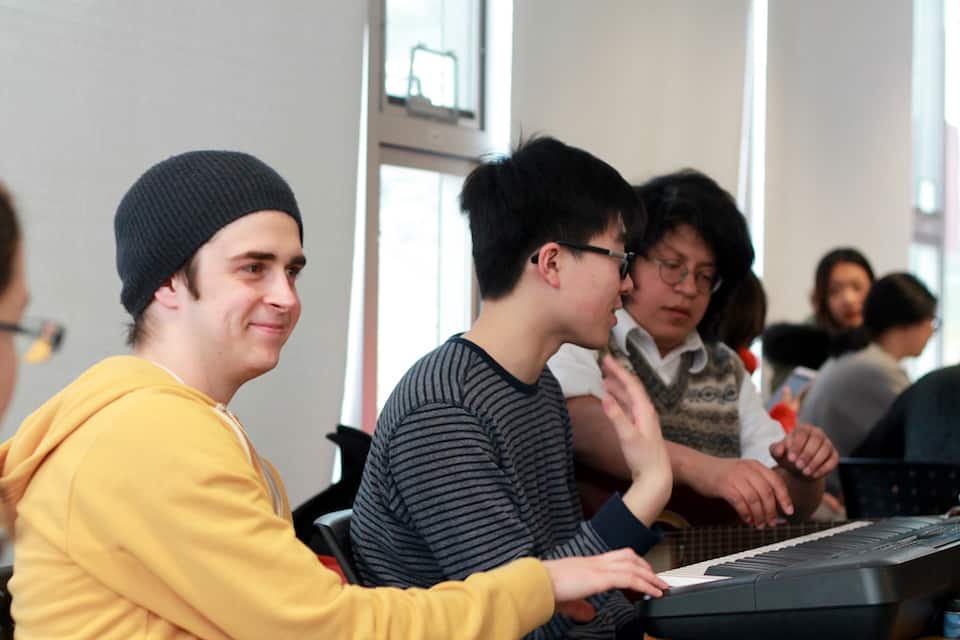The Faculty of Arts & Science has concluded its review of the Campaign for Community’s eligibility to offer course credits as part of its programming.
The initiative allowed students to undertake an independent study project with the program for course credit, under the supervision of a sociology professor. However concerns pertaining to the program’s pedagogy arose and a review process was initiated.
“[The Campaign For Community] started doing basically social activities that sort of looked like a club,” said Alex Verman, Arts & Science Students’ Union executive and participant in the independent research endeavour. “These things started last year and they’re a bit of an anomaly. We saw mostly something that looked like a club but was being taught as a class, and students could get credit for it but they weren’t really learning much.”
An independent study credit usually involves a student proposing a topic to a professor with whom the student works to develop the idea. This was not the case for the Campaign for Community’s independent study program, due to the number of students involved. Instead, one professor supervised multiple independent studies that were centered on similar concepts.
“Having had that experience I brought up in my first meeting with the faculty registrar that it would be good if we get a syllabus or list of expectations for independent study classes, and the registrar was confused because it was an independent study class, you shouldn’t even need that because it’s just the professor and the student. What was revealed is that [Campaign for Community] was operating as an independent study and therefore it doesn’t need to be looked at in any depth,” said Verman.
Verman said that they do not believe the organizers acted maliciously, but that students’ education is being compromised. “I’m not assigning malicious intent; I know people involved. They’re really nice people with really good intentions but what is actually happening is you have students paying real, literal money that they work hard for or their family works hard for and is probably really difficult to come by and then not getting what they signed up for, or a class really at all,” they said.
ASSU raised the issue to the dean of Arts & Science and the faculty registrar, who agreed to look into it. According to Verman, a week after the issue was first raised, it became “immediately apparent that it doesn’t satisfy the conditions to be taught as a class.”
The review of Campaign for Community’s for-credit programming consisted of a meeting between the campaign’s founder, David Fishbayn, and Penelope Lockwood, who is the acting associate dean, undergraduate, for the Faculty of Arts & Science. In the meeting, it was established that if the Campaign for Community intends to continue its for-credit programming, it must first be subject to a faculty-level review process.
“When I was a student, people in my social circles really wanted to do something about the nature of community at U of T. We wanted to improve community and in order to do that, we had to create a group that would actually do stuff, so it wasn’t really about essay writing, it was about doing,” said Fishbayn.
Fishbayn did an independent study himself, addressing the problem of community building at U of T through a for-credit option to keep students motivated in an independent study format.
“At the time we just sort of did this independent study thing where we had a large number of forms being processed by one professor, and at the time it just sort of seemed like a way to sort of generate a creative solution to some problems on campus.”
With the Faculty of Arts & Science citing issues of pedagogy as part of the reason for their review, Fishbayn said that the review was fair. He stated that concerns surrounding multiple independent studies conducted by a single professor stemmed from the fact that the studies were not listed as a traditional course, which caused confusion.
Going forward, Fishbayn says that Campaign for Community plans to run the program on a volunteer basis, and if a for-credit option should become possible, then the Faculty of Arts & Science will review it, which would take a year.
“We’ve already moved on and nobody’s really too focused on it, we’re just focusing on our programs and events and things are going very well,” said Fishbayn. “[The] credits still count but moving forward we just need to change some things.”


